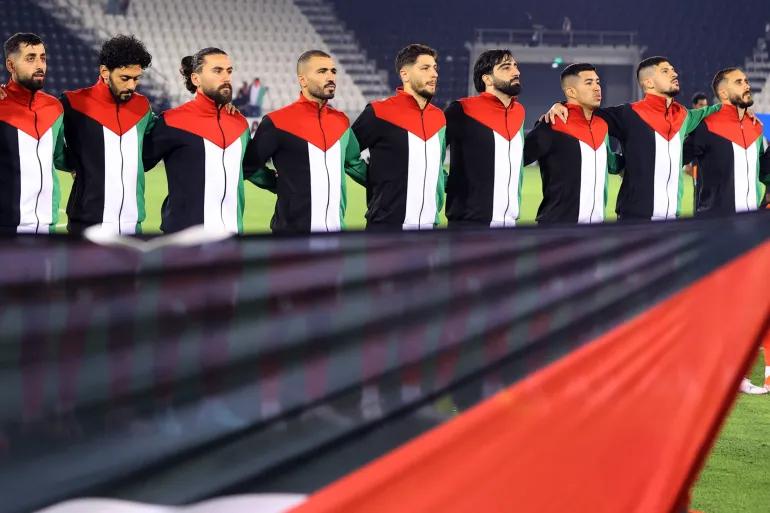Palestine's World Cup Dream: A Beacon of Hope Amidst Conflict
9 September 2024 - 17:55

Amid the relentless conflict and humanitarian crisis gripping Gaza, Palestine's pursuit of a spot in the FIFA World Cup 2026 stands as a powerful symbol of hope and resilience. While the Palestinian national football team faces immense challenges, their aspiration to reach football's global stage is a testament to their enduring spirit.
Recently, the Palestinian squad made headlines with a remarkable performance in their World Cup qualifiers. In a surprising turn of events, they secured a hard-fought 0-0 draw against South Korea at the Seoul World Cup Stadium, a venue renowned for its passionate and intimidating atmosphere. The result was a significant achievement, reflecting not only the team's determination but also the support of fans who embraced Palestine as underdogs.
The match showcased the exceptional skill of Palestinian goalkeeper Rami Hamadeh, whose decisive saves ensured that South Korea's dominant play did not result in a goal. Despite a close call in stoppage time when South Korean goalkeeper Jo Hyeon-woo denied Wessam Abou Ali a potential match-winning goal, the draw was celebrated as a historic moment for the Palestinian team.
For the players, the experience was a poignant reminder of the broader significance of their efforts. Mohammed Rashid, a key midfielder, spoke of the unyielding dream that drives the team despite the harsh realities of their situation.
I’m always dreaming, they try to kill our dreams, but we will not let them stand in our way but we can never stop dreaming - Mohammed Rashid, Midfielder
The ongoing conflict, which has claimed thousands of lives and inflicted severe suffering in Gaza, has deeply impacted the players and the sport in Palestine. According to the Palestine Football Association (PFA), the war has resulted in the deaths of over 400 athletes, officials, and coaches, including 297 footballers and 84 children with aspirations of representing their country.
In light of these tragedies, the PFA's Vice President Susan Shalabi began documenting the losses to humanize the statistics and honor the memories of those affected. However, the sheer scale of the devastation eventually overwhelmed her efforts.
It’s really hard to keep up with the numbers and the emotional toll - Vice President Susan Shalabi
Despite these immense challenges, the Palestinian team has continued to represent their nation with pride.
Flying the flag for Palestine means more than any result - Vice President Susan Shalabi
The team, currently playing its “home” matches in neutral venues due to the security situation, is buoyed by the support of nations like Malaysia, which has offered to host their games.
Palestine's path to the World Cup is fraught with difficulty. They face tough competition in their group, which includes South Korea, Iraq, Oman, and Kuwait. The team must either finish in the top two of their group or secure a position that allows them to advance to the next round of qualifiers.
Despite being ranked lower than their competitors, Palestine's determination remains undiminished. The team’s quest for World Cup qualification is not just about football; it represents a larger symbol of hope for a nation enduring conflict. As PFA Deputy General Secretary Sami Abu Al Hussein noted, the team’s success provides a glimmer of hope for Palestinians both at home and abroad.
We are so proud of them because they are providing a voice for the whole of Palestine, they represent the hope of our people, especially those living under such dire circumstances in Gaza - PFA Deputy General Secretary Sami Abu Al Hussein
As the qualifiers continue, Palestine’s dream of reaching the 2026 World Cup stands as a powerful testament to their resilience and enduring hope for a brighter future.

